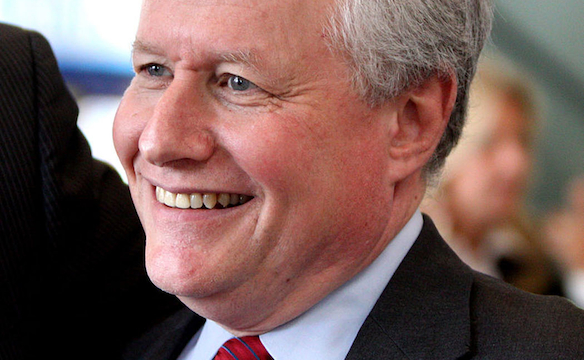Neoconservatism has become the red-headed stepchild at the Republican dinner table. Reihan Salam wants to change that.
Videos by Rare
The National Review scribe recently penned a piece for Slate called “Why I am Still a Neocon,” in which he defends the oft-ridiculed political philosophy against its libertarian and liberal critics.
Credit is due to Salam. Whereas many neoconservative apologetics barely acknowledge that the Iraq war happened (David Brooks has a column that spins neoconservatism as “primarily a domestic policy movement”), Salam confronts the issue head-on, admitting that our adventure in Mesopotamia was a failure. But he also says that, on balance, the world is a better place because America is at its vanguard. “America’s failure in Iraq does not change the fact that global stability depends on American global leadership,” he writes.
But are neoconservatives merely those who want America to have a leadership role in the world? That seems like an awfully big tent.
And this is where Salam and so many contemporary neocon defenders trip over their shoelaces. “I should note,” Salam writes in a follow-up piece, “that I do not believe that neoconservatism, as I’ve formulated it, and ‘vigorous right-wing military interventionism’ are the same thing.”
Perhaps that was true thirty years ago, but today it’s an impossible claim to make. The reflex to intervene militarily isn’t some occasional overindulgence of modern neoconservatism. It is the defining characteristic, what makes neoconservatism distinct.
That intervention reflex goes well beyond Iraq. When Libya was engulfed in a civil war, the consensus in much of Washington, concentrated in neoconservative circles, was that we needed to Do Something. So we invaded with the British and the French, and overthrew Moammar Gaddafi.
As a result, the death toll of that war increased eight-fold and Libya was scarred by instability, with militias roaming the desert and black African communities ethnically cleansed. Arms smuggled from Gaddafi’s stockpiles later turned up in Mali, helping destroy one of the most promising democratic governments in Africa, and in Syria, fueling a bloody civil war.
The neoconservative reaction was: All right, now we can kick ass in Syria! And we would have, were it not for a rebellion in Congress and a last-minute life preserver thrown by, of all people, Vladimir Putin.
This goes well beyond making America a global leader. It’s the continued belief, impenetrable to new evidence, that America should use its military to proactively spread democracy around the world.
Neoconservatism’s rough origin is with the academic Leo Strauss, who believed that universal principles derived from philosophy were the only valid source of morality for man. As Strauss’s thought was nurtured and applied by other thinkers, those principles were defined, in part, as democracy and human rights.
Because these ideals were universal, they papered over petty local conflicts and identities. When we invaded Iraq, the Bush administration assumed any violence between Sunnis and Shias would be short-lived because the greater overriding impulse would be towards secular democracy. “If [our] values are good enough for our people, they ought to be good enough for others,” President George W. Bush declared.
Fertilizing the world with democratic values is a tall order, and one that requires a lot of government muscle. Neoconservatives, then, invest a lot of trust and money in the federal government. Salam tellingly spends the second half of his piece defending America’s bloated military budget.
This faith in the feds bleeds over to their domestic policy. As C. Bradley Thompson notes, neoconservatives want to regulate the economy, like traditional conservatives, and social issues, like liberals, “but moderately so.” Neoconservatism believes government can tinker with American society just as it can fiddle with Iraqi society.
This aligns neoconservatives against libertarians. Sure enough, Leo Strauss reportedly hated small-government conservatism. David Brooks has warned that the GOP shouldn’t turn back to its “Goldwater-Reagan glory days” when it was the “maximal-freedom party.” Neoconservatives have been tepid allies at best in the fight to reduce government spending.
It’s here that we find the real problem faced by Salam: not that neoconservatism is bellicose or quixotic, though it is, but that it’s a big-government philosophy that subverts individual desires to collectivist ends. And with the wars in Iraq and Libya having failed, with federal fingerprints all over the housing bubble and the economic crash, with the public holding Washington in the same esteem as prostate cancer, its positions are quickly going out of style.
The public doesn’t want another military adventure or government intervention. If political elites are going to concoct grand schemes, count them out.
With the rise of politicians like Rand Paul and movements like the Tea Party, neoconservatism is being eclipsed on the right.
Let’s make sure we remember why.



